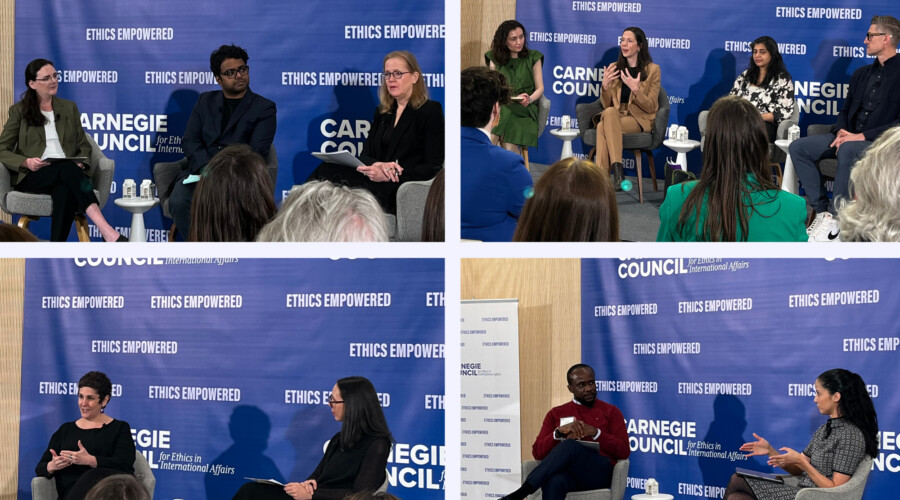What is the greatest ethical challenge facing U.S.-Asia relations? In this unique contest, Carnegie Council for Ethics in International Affairs challenged American and East Asian students to partner together and submit a joint essay or video to answer this question—whether about U.S.-Asia relations in general, or U.S. relations with a particular East Asian country.
The contest received entries by undergraduate, graduate, and postgraduate students from the U.S., Cambodia, China, Indonesia, Japan, Malaysia, Myanmar, the Philippines, Singapore, South Korea, Taiwan, Thailand, and Vietnam. In total, nearly 100 students from the two regions paired up to publicly post their entries on the Council's social media site, Global Ethics Network. As one participant from China remarked, "[T]his competition is a wonderful experience and a great chance for us to deepen understanding of two countries."
The winning essay by Robert D. O'Brien and Shiran Shen is entitled "The U.S., China, and Cybersecurity: The Ethical Underpinnings of a Controversial Geopolitical Issue." Ms. Shen is a Ph.D. Candidate at Stanford University and Mr. O'Brien is a Ph.D. Candidate at Oxford University.
"The topics that the students focused on really spoke to the most pressing issues of our time in U.S.-Asia relations, including the threat of cyber-war, sweatshops and corporate responsibility, human rights and censorship, democratic change, the legacy of imperialism, and climate change and the environment," said Carnegie Council Senior Fellow Devin Stewart. "These essays and videos offer a unique perspective as each one was authored by both an Asian and an American student, underscoring the weight of their concerns."
This contest is part of Ethics for a Connected World, a three-year global education project to mark the Council's 2014 Centennial. The winners will receive a trip to New York City to attend the Council Global Ethics Network Annual Meeting and will give a presentation on their work.
"It has been inspiring to watch the partnerships grow between Asian and American students during this contest," said Stewart. "Due to the extraordinary quality of the submissions, we will publish the top essays in an edited volume. Our experiment was a success, and we look forward to holding the contest again next year."
This contest was made possible by a generous grant from the Henry Luce Foundation, established in 1936 by the late Henry R. Luce, co-founder and editor-in-chief of Time Inc., to honor his parents who were missionary educators in China. The Foundation seeks to bring important ideas to the center of American life, strengthen international understanding, and foster innovation and leadership in academic, policy, religious, and art communities.



